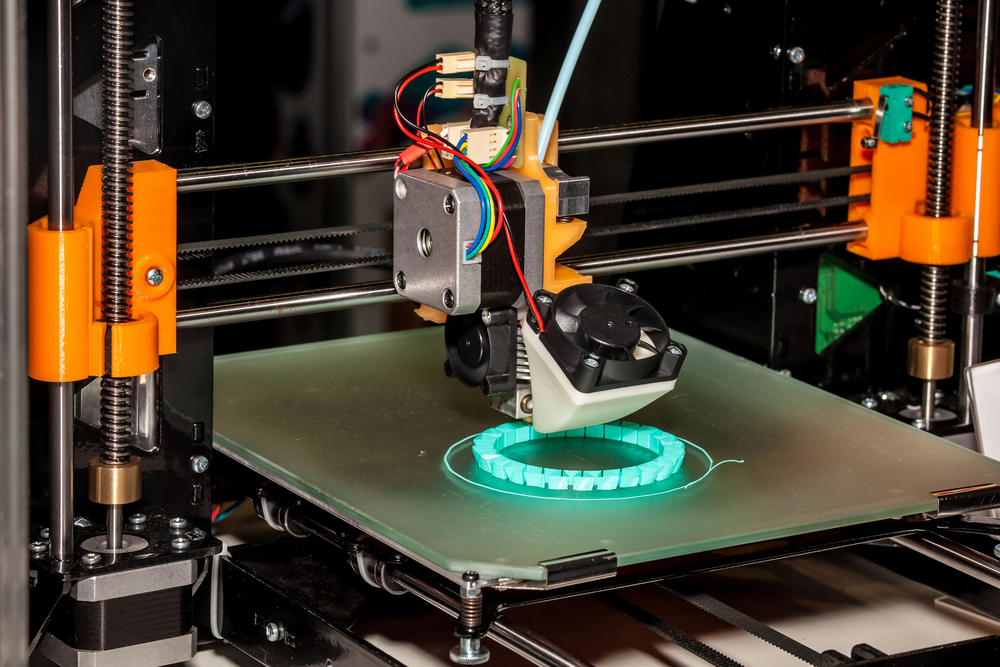Sustainable manufacturing has become more and more crucial for companies seeking a competitive advantage in the market to build more resilient and sustainable supply chains. Manufacturers face growing scrutiny in the visibility of their products’ sourcing and production processes and global supply chain disruptions limiting their ability to deliver products to meet their global customer demand. They must pay closer attention to their energy consumption, supply requirements and risks, and the overall environmental impact of their production process.
Additive manufacturing is unlike traditional manufacturing environments that involve multiple assembly steps, elaborate post-processing, increased tooling costs, and minimum order quantities (MOQs). It allows companies to control production scale and introduce greater design complexity while improving production efficiency, eliminating tooling costs, and providing a more sustainable manufacturing alternative. This article will discuss how sustainable additive manufacturing is during the normal supply chain, disrupted supply chain conditions, and what drives this sustainability and resilience.

How Sustainable is Additive Manufacturing?
The level of sustainability achieved with additive manufacturing has made it the U.S. Department of Energy’s primary focus over more traditional manufacturing processes. How sustainable is additive manufacturing exactly? Overall, it reduces energy use by 25% and can cut waste and materials costs by up to 90% compared to traditional manufacturing methods. This impact is due to several factors, including the following:
Reduced Manufacturing and Supply Chain Carbon Footprint
Increasing the efficiency of the manufacturing process reduces its carbon footprint significantly. Additive manufacturing reduces the number of steps required to create a finished product by condensing multiple parts into one printed piece. 3D printing also reduces production steps, labor, and waste by eliminating multiple test runs and tooling modifications on prototypes.
Additionally, when parts are made in-house rather than imported, it requires fewer materials and less transportation to ship parts, reducing manufacturing carbon emissions. Additive manufacturing materials and resins can be sourced locally, and products can be manufactured closer to the customer, further reducing transportation emissions and product carbon footprint.
Less Material Waste
Compared to traditional manufacturing methods, additive manufacturing reduces scrap rates, and resin printing produces minimal waste from support structures. 3D-printed consumer goods have a longer lifespan and better product performance, greatly reducing the frequency of necessary product replacement and landfill waste. Manufacturers can also easily develop modified design dimensions to minimize material waste and reduce energy consumption while scaling production. Customizing parts that fit specific customer needs can reduce material waste associated with large-batch production.
Increased Material Eco-Friendliness
Utilizing enhanced and reusable materials greatly increase manufacturing sustainability. Recycling raw materials reduces storage space and increases material value, thus increasing sustainability and economic worth. 3D-printable materials offer the advantages of additive manufacturing, including design freedom, simplified production processes, and greater agility while matching or exceeding the mechanical properties of traditional materials. Biomass-derived materials developed for 3D printing as an alternative to fossil-fuel-based materials also provide a more eco-friendly option that reinforces a renewable bioeconomy.
Efficient Mass Customization
Additive manufacturing gives companies much more design freedom to print multiple functional product variations without additional tooling or other infrastructure investment. Manufacturers can develop CAD files that utilize customer input and significantly enhance mass production of fully customized products. Incorporating Generative Design into CAD software allows manufacturers more design control by generating and analyzing all potential design ideas optimized to meet goals and limit constraints. Printing highly complex designs consolidated into a single-print part greatly increases production efficiency and eliminates tooling costs for greater economic sustainability.
On-Demand Inventory
Several companies are reducing traditional and centralized large-scale overseas manufacturing of consumer goods to deploy several Smart Factories closer to their intended markets. Bringing manufacturing closer to the consumer can help companies better respond to the local market demands and utilize on-demand printing to meet scaling needs. On-demand printing eliminates high product storage costs and material waste from unsold products associated with high-volume production. Additive manufacturing makes the entire customization process more material-efficient and sustainable with on-demand printing that uses only the necessary materials required to create a finished product.
Achieving Sustainability and More Predictable Supply Chain with Integrated Solutions and Services from LuxCreo
Partnering with a company that is driven to improve manufacturing sustainability can help your company deliver more sustainable and lower carbon footprint products to your customers. LuxCreo’s patented 3D printing LEAP (Light Enabled Additive Production) platform significantly reduces material, labor, and production costs and waste. Companies can easily scale production with the help of Smart Factories production services and industrial-grade Smart Factory 3D printers powered by AI-enabled software that creates a fast and simplified, and sustainable digitized production workflow. LuxCreo’s high-performance, eco-friendly 3D printing materials have mechanical properties comparable to or better than traditional materials and produce highly accurate and economical consumer goods at scale.
The LuxCreo Smart Factory 3D printers and Smart Factory production service offer an agile and versatile manufacturing platform supporting footwear, medical, dental, consumer, and industrial industries to help companies bring high-performance products to market and enhance production agility. With LuxCreo, companies can implement new, innovative design and production methods while achieving much greater environmental sustainability and supply chain resilience than conventional manufacturing processes.
For more information on how LuxCreo’s advanced solutions can help your company achieve greater environmental sustainability, contact us or call (650) 336-0888.